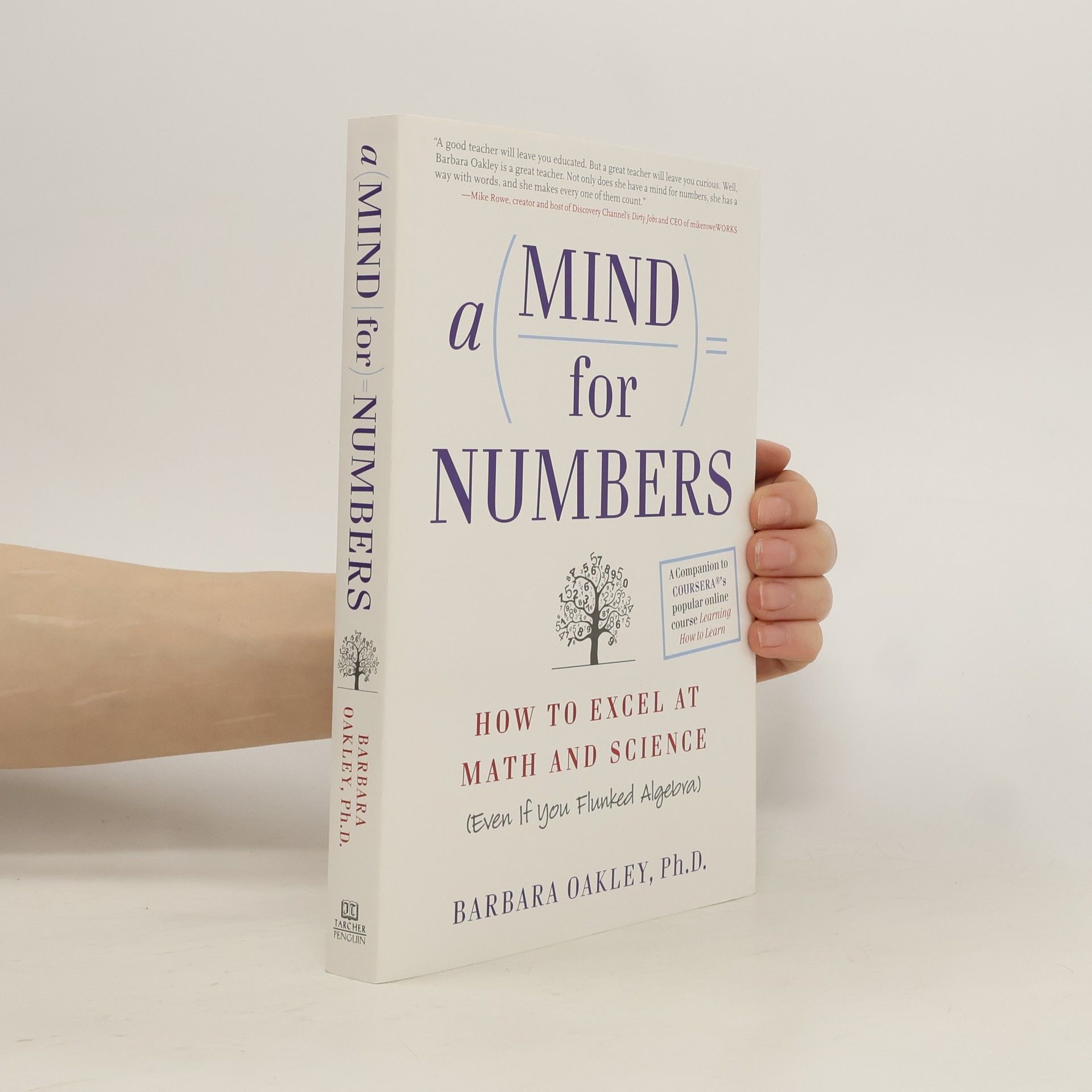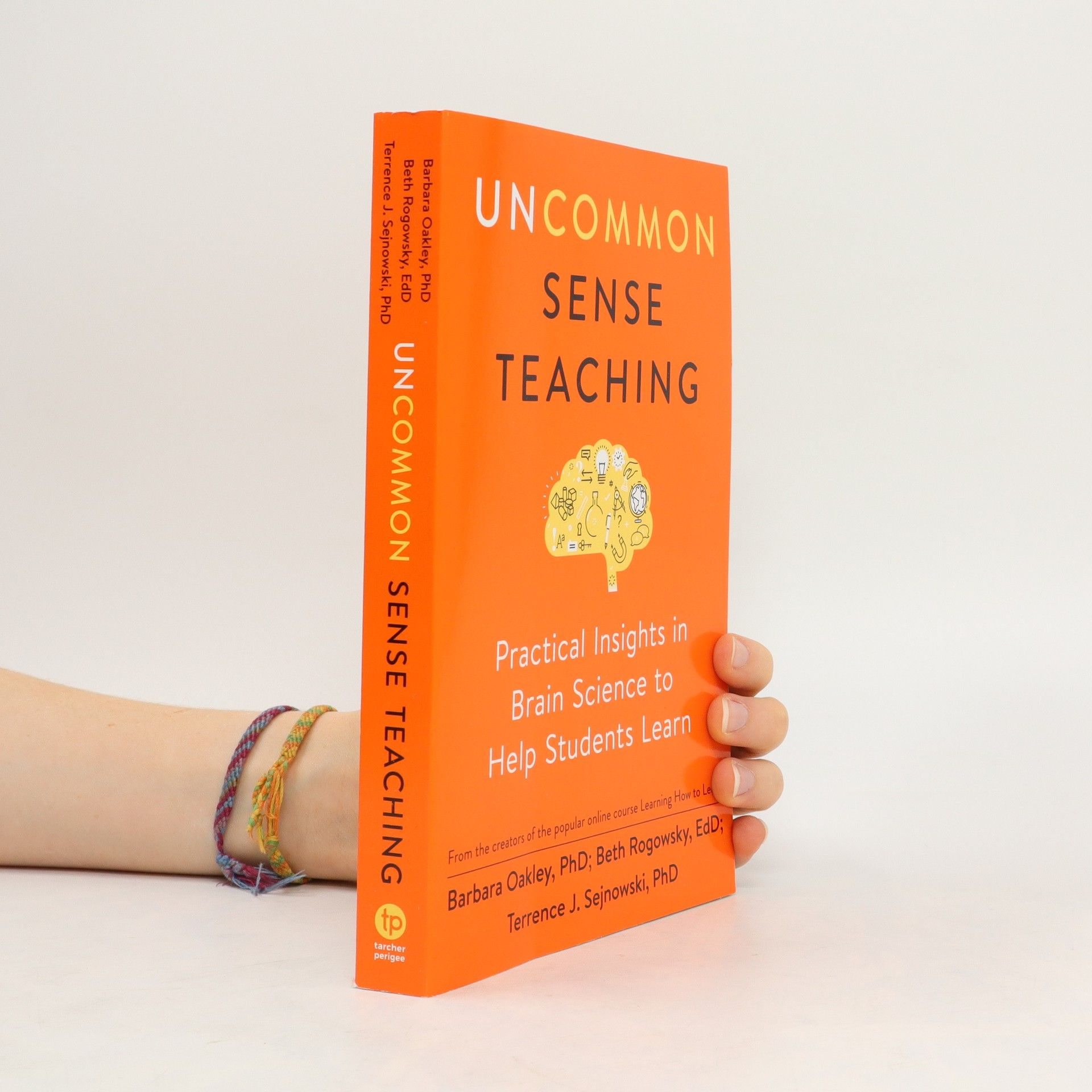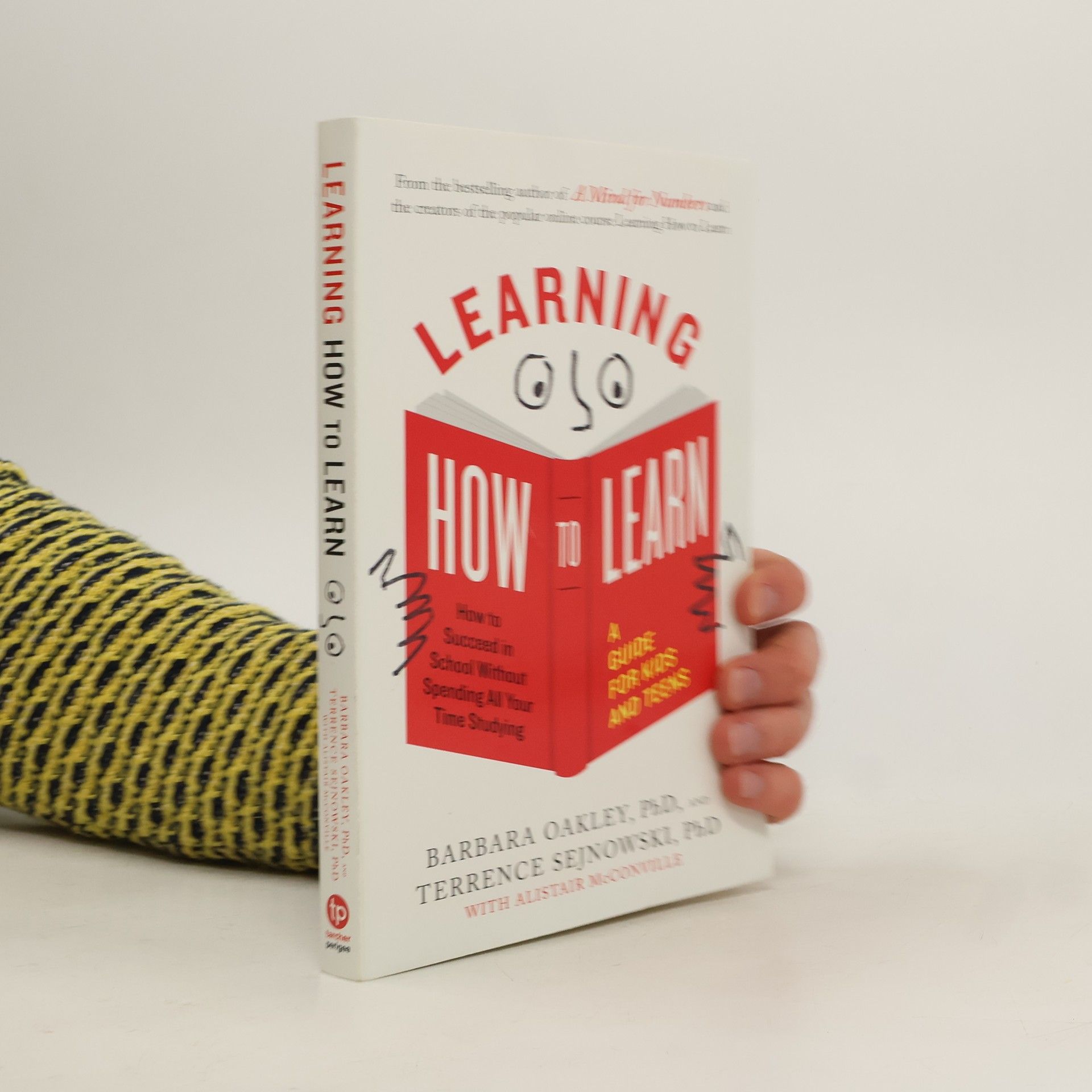Baví vás učení? No, asi moc ne… Jako nakonec většinu lidí. Ale co když se učení stane dobrodružstvím? Co když se vám podaří zapomenout na dřinu a úsilí a najednou vás začne proces učení doopravdy bavit? Fascinující knížka nabízí spoustu užitečných postřehů a technik, jak zvýšit efektivitu učení. Dozvíte se, jak udržet pozornost, jak správně procvičovat probranou látku, jak najít klíčové myšlenky a jak si je zapamatovat. Když si osvojíte jednoduché a praktické postupy, které autorka popisuje, budete se učit mnohem snáze, efektivněji a vyhnete se všem těm negativním pocitům, které jste dosud měli s učením spojené.
Barbara A. Oakley Knihy
Barbara Oakleyová, držitelka doktorátu v oboru systémového inženýrství, je autorkou, jejíž díla se zabývají komplexními, často nečekanými propojeními mezi vědou a lidskou zkušeností. Její psaní, ovlivněné jejím rozmanitým profesním životem v oblastech jako je inženýrství a námořnictví, nabízí jedinečnou perspektivu na proces učení a překonávání překážek. Oakleyová zkoumá, jak můžeme lépe pochopit a rozvíjet své kognitivní schopnosti. Její přístup je praktický i hluboce analytický, což čtenářům poskytuje cenné nástroje pro osobní i profesní růst.






Learning how to learn : how to succeed in school without spending all your time studying
- 256 stránek
- 9 hodin čtení
A surprisingly simple way for students to master any subject--based on one of the world's most popular online courses and the bestselling book A Mind for Numbers A Mind for Numbers and its wildly popular online companion course "Learning How to Learn" have empowered more than two million learners of all ages from around the world to master subjects that they once struggled with. Fans often wish they'd discovered these learning strategies earlier and ask how they can help their kids master these skills as well. Now in this new book for kids and teens, the authors reveal how to make the most of time spent studying. We all have the tools to learn what might not seem to come naturally to us at first--the secret is to understand how the brain works so we can unlock its power. This book explains: Why sometimes letting your mind wander is an important part of the learning process How to avoid "rut think" in order to think outside the box Why having a poor memory can be a good thing The value of metaphors in developing understanding A simple, yet powerful, way to stop procrastinating Filled with illustrations, application questions, and exercises, this book makes learning easy and fun.
Uncommon sense teaching. practical insights in brain science to help students learn
- 336 stránek
- 12 hodin čtení
Top 10 Pick for Learning Ladders’ Best Books for Educators Summer 2021 A groundbreaking guide to improve teaching based on the latest research in neuroscience, from the bestselling author of A Mind for Numbers. Neuroscientists and cognitive scientists have made enormous strides in understanding the brain and how we learn, but little of that insight has filtered down to the way teachers teach. Uncommon Sense Teaching applies this research to the classroom for teachers, parents, and anyone interested in improving education. Topics include: • keeping students motivated and engaged, especially with online learning • helping students remember information long-term, so it isn't immediately forgotten after a test • how to teach inclusively in a diverse classroom where students have a wide range of abilities Drawing on research findings as well as the authors' combined decades of experience in the classroom, Uncommon Sense Teaching equips readers with the tools to enhance their teaching, whether they're seasoned professionals or parents trying to offer extra support for their children's education.
Engineering professor Barbara Oakley knows firsthand how it feels to struggle with math. In her book, she offers you the tools needed to get a better grasp of that intimidating but inescapable field.
Mindshift
- 297 stránek
- 11 hodin čtení
"Mindshift reveals how we can overcome stereotypes and preconceived ideas about what is possible for us to learn and become. At a time when we are constantly being asked to retrain and reinvent ourselves to adapt to new technologies and changing industries, this book shows us how we can uncover and develop talents we didn't realize we had--no matter what our age or background. Drawing on the latest neuroscientific insights, Dr. Oakley shepherds us past simplistic ideas of 'aptitude' and 'ability,' which provide only a snapshot of who we are now. Even seemingly 'bad' traits, such as a poor memory, come with hidden advantages--like increased creativity. Dr. Oakley teaches us strategies for learning that are backed by neuroscience so that we can realize the joy and benefits of a learning lifestyle"--
Evil Genes
- 459 stránek
- 17 hodin čtení
Have you ever heard of a person who left you wondering, "How could someone be so twisted? So evil?" Prompted by clues in her sister’s diary after her mysterious death, author Barbara Oakley takes the reader inside the head of the kinds of malevolent people you know, perhaps all too well, but could never understand.Starting with psychology as a frame of reference, Oakley uses cutting-edge images of the working brain to provide startling support for the idea that "evil" people act the way they do mainly as the result of a dysfunction. In fact, some deceitful, manipulative, and even sadistic behavior appears to be programmed genetically—suggesting that some people really are born to be bad.Oakley links the latest findings of molecular research to a wide array of seemingly unrelated historical and current phenomena, from the harems of the Ottomans and the chummy jokes of "Uncle Joe" Stalin, to the remarkable memory of investor Warren Buffet. Throughout, she never loses sight of the personal cost of evil genes as she unravels the mystery surrounding her sister’s enigmatic life—and death.Evil Genes is a tour-de-force of popular science writing that brilliantly melds scientific research with intriguing family history and puts both a human and scientific face to evil.